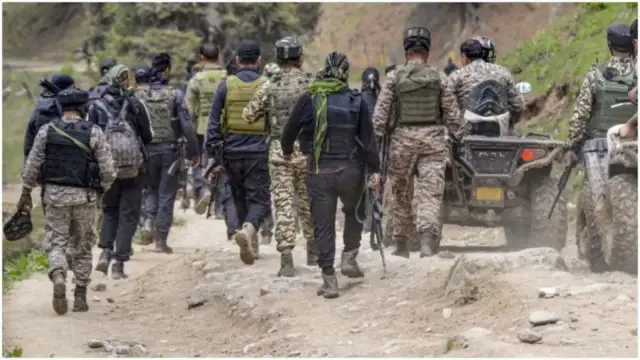India-China dynamics: Jaishankar urges strategic readiness amidst rising tensions
External Affairs Minister S. Jaishankar recently addressed the complexities in India-China relations, particularly in light of the post-2020 border situation.

The India-China relationship is currently navigating complexities stemming from the post-2020 border situation. External Affairs Minister S. Jaishankar emphasized the need for a more thoughtful approach to the long-term evolution of ties between the two nations during his recent lecture in Mumbai.
Historical Context and Misreadings
Jaishankar reflected on historical misreadings by past policymakers, which were often driven by idealism or a lack of realpolitik. He stated that these misjudgments have not facilitated cooperation or competition with China. However, he noted that there has been a significant shift in this dynamic over the last decade, indicating a more pragmatic approach to bilateral relations.
Mutual Principles for Future Relations
The minister highlighted that mutual trust, respect, and sensitivity should form the foundation of India-China relations. He acknowledged that establishing equilibrium with China presents unique challenges, particularly as both nations are rising powers. The relationship is further complicated by historical baggage and differing socio-political systems.
Current Challenges and Strategic Preparedness
Jaishankar pointed out that India must prepare for "expressions of China's growing capabilities," which could impact Indian interests. He stressed the importance of enhancing India's comprehensive national power to address these challenges effectively.
Recent Developments in Military Disengagement
Following an agreement reached on October 21, Indian and Chinese militaries have successfully disengaged troops at key friction points, including Demchok and Depsang. This military disengagement is seen as a crucial step toward stabilizing bilateral ties.
The Indo-Pacific Context
Jaishankar also discussed the significance of the Indo-Pacific region, noting how changes in U.S. and Chinese positions contribute to its emergence as a critical geopolitical theatre. He highlighted India's Act East policy and its deeper engagement with nations like Japan and Australia as part of this strategy.
The revival of the Quad since 2017 has enabled substantial progress in areas such as climate action, supply chains, and maritime security. Jaishankar cited initiatives like the India-Middle East-Europe Economic Corridor (IMEC) as examples of India's proactive engagement with multiple partners.
A Path Forward
In conclusion, Jaishankar articulated that both nations must realize that their future prospects—and even those of the global order—depend on constructive engagement. He reiterated the necessity for a multi-polar Asia as a prerequisite for a multi-polar world.
(Except for the headline, nothing has been changed by Top Indian News in the PTI copy.)















